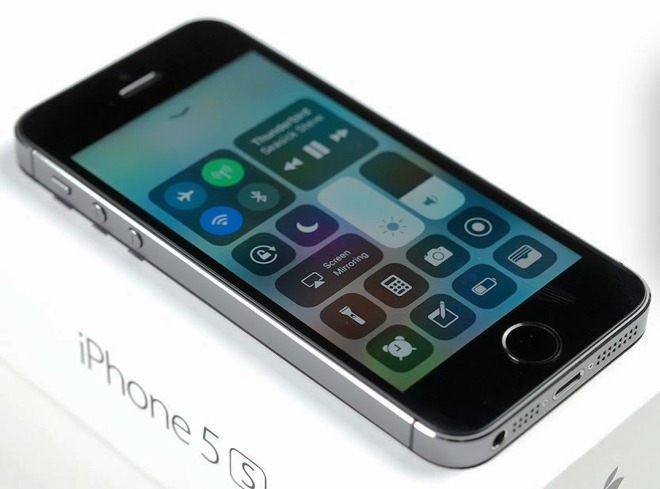Benchmarking firm Futuremark has weighed in on claims that Apple is intentionally slowing down older iPhones to encourage upgrades, with analysis of benchmark results indicating iPhones maintain their performance over time instead of deteriorating.

Image Credit: Wylsacom on YouTube
To answer allegations of Apple purposefully holding back previous iPhone models via changes in iOS, Futuremark compiled data from its free 3DMark benchmarking tool, gathering results submitted by users. The company found that iOS updates largely kept iPhones running at a similar level of performance.
Data came from 3DMark's Sling Shot Extreme Graphics and Extreme Physics tests, used to measure the GPU and CPU performance respectively. Specifically, Futuremark turned to the average score for each device over the course of a month.
Looking at the iPhone 5s, the oldest device examined, a graph showing GPU performance reveals the average score has remained relatively stable between April 2016 and September 2017, with expected minor variations from month to month. A similar story was found with the phone's CPU performance, its score barely changing between months, the most recent average falling just slightly when compared with the earliest record.
"The graphs for CPU performance show a very slight drop in performance over time -- possibly due to minor iOS updates or other factors -- but a user would be unlikely to notice this small difference in everyday use," a Futuremark statement reads.

For the iPhone 6, GPU performance scores increased over time, with a small but noticeable jump at the time of iOS 10's release, and another larger increase for iOS 11. CPU performance did gradually decay in the results, though only slightly, with the graph leveling off from May 2017 onward.
In iPhone 6s graphs, GPU performance peaked for the introduction of iOS 10, before slightly dropping off and leveling again from May 2017. There is a very modest decline in CPU performance, though with no significant score shifts.
Lastly, iPhone 7 GPU performance did waver over time, with a fair boost visible for the last bar of the chart, representing the launch of iOS 11, but no major deterioration. CPU performance decreases towards the end of the chart, but again this shows only a marginal change over time.
"Our benchmarking data shows that, rather than intentionally degrading the performance of older models, Apple actually does a good job of supporting its older devices with regular updates that maintain a consistent level of performance across iOS versions," writes Futuremark.
The firm does note that there are some factors that may make users perceive a loss of performance after updating the operating system. These include updates introducing new resource-intensive features, new apps developed for newer hardware not running as smoothly, and older apps failing to take advantage of optimizations in later iOS releases.
There is also the human factor, Futuremark suggests. "There is always the psychological effect of knowing that there is a new and improved model available, which can make your own device seem outdated."
Another investigation into iOS upgrades for older devices, published in September, found that Apple's own apps became only marginally slower.
Benchmark scores are usually seen as a way to compare mobile devices against each other, though sometimes this can be an unreliable indicator. In 2013, Samsung was caught cheating in benchmarks, by including code within the operating systems of the Galaxy S4 and the Note 3 to make the processors run at maximum capacity if a benchmarking app was detected.